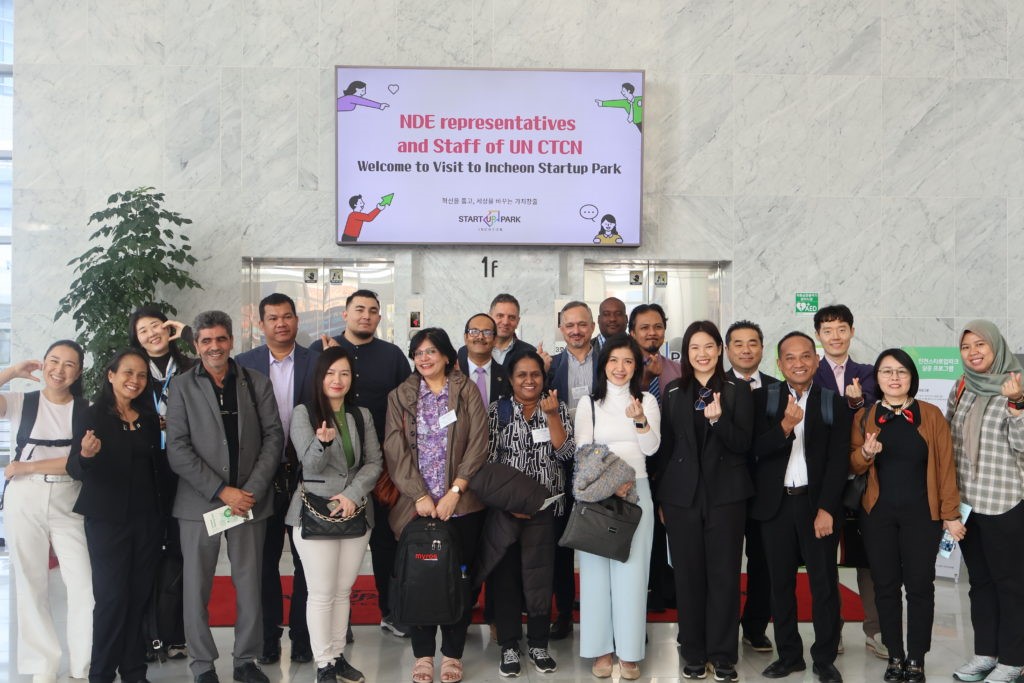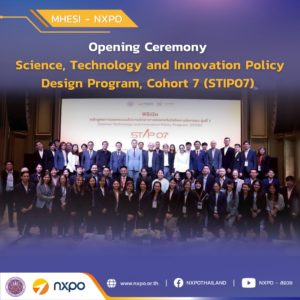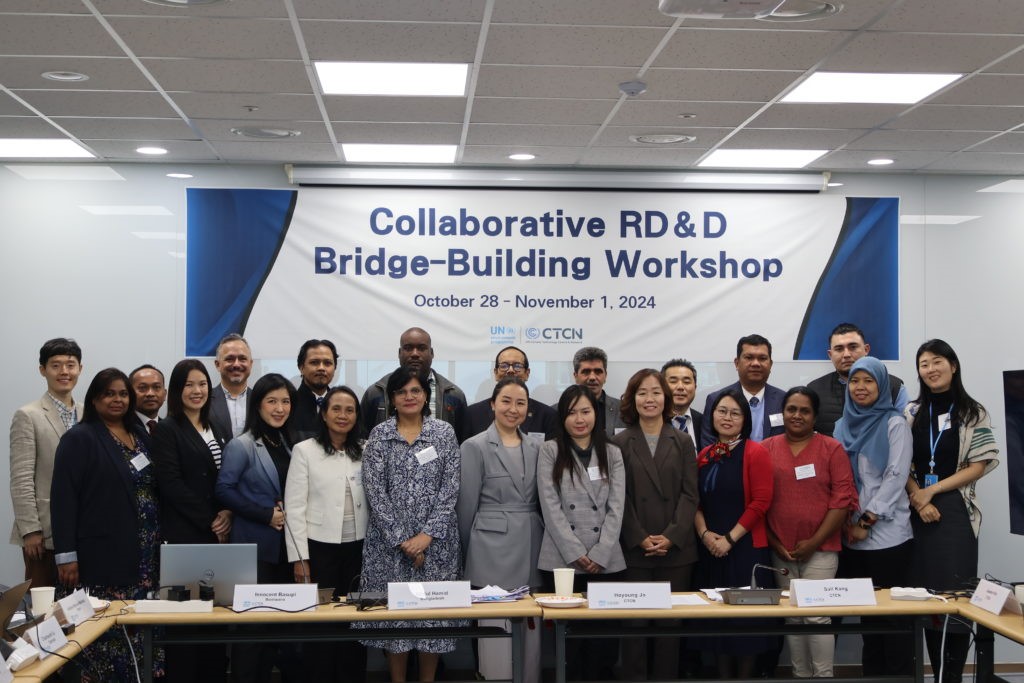
MHESI-NXPO, serving as Thailand’s National Designated Entity (NDE) under the Technology Mechanism of the the United Nations Framework Convention on Climate Change (UNFCCC), participated in the Collaborative RD&D Bridge-Building (CRD2B2) Workshop 2024. The workshop was held in conjunction with the 19th Policy Consultation Forum of the Seoul Initiative Network on Green Growth (SINGG), 2024 Incheon International Environmental Technology Confex and GreenEner TEC from 28 October to 1 November 2024 in South Korea. NXPO Sustainability Policy Division Director Dr. Saravanee Singtong and NXPO Policy Developer Dr. Natthamon Suwannaprom represented NDE Thailand at the forum, joining NDEs from 17 countries, including Brazil, Botswana, Kazakhstan, Lebanon, South Africa, Indonesia, and Mongolia.
Organized by the UN Climate Technology Centre & Network (CTCN), the workshop provided a platform for NDEs and prominent organizations such as the Korea Institute of Energy Technology (KIER) and the Korea Institute of Industrial Technology (KITECH) to share strategies for climate technology development, facilitating global collaboration on climate action. The forum presented an RD&D program proposal under the UNFCCC Technology Mechanism, which will be reviewed at the 29th Conference of the Parties to UNFCCC.
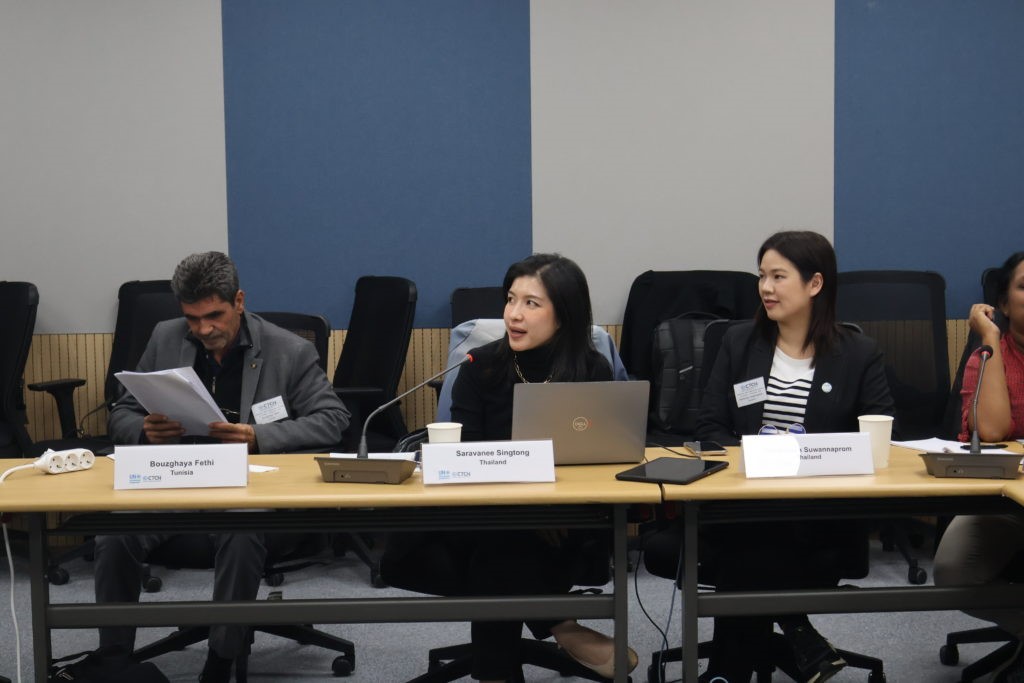
At the event, Dr. Saravanee highlighted NXPO’s functions as NDE Thailand and a main agency responsible for national higher education, science, research, and innovation policy. Through technical assistance (TA) provided by the CTCN, NXPO has enhanced its role as a key contributor to Thailand’s innovation system. This TA support enables NXPO to work with network partners to drive net-zero initiatives that address current and future needs while advancing the country’s innovation ecosystem. Major net-zero initiatives include the Mae Moh Model, the Saraburi Sandbox, and the Net Zero Campus, all serving as platforms to pioneer climate innovations before scaling them at the national level.
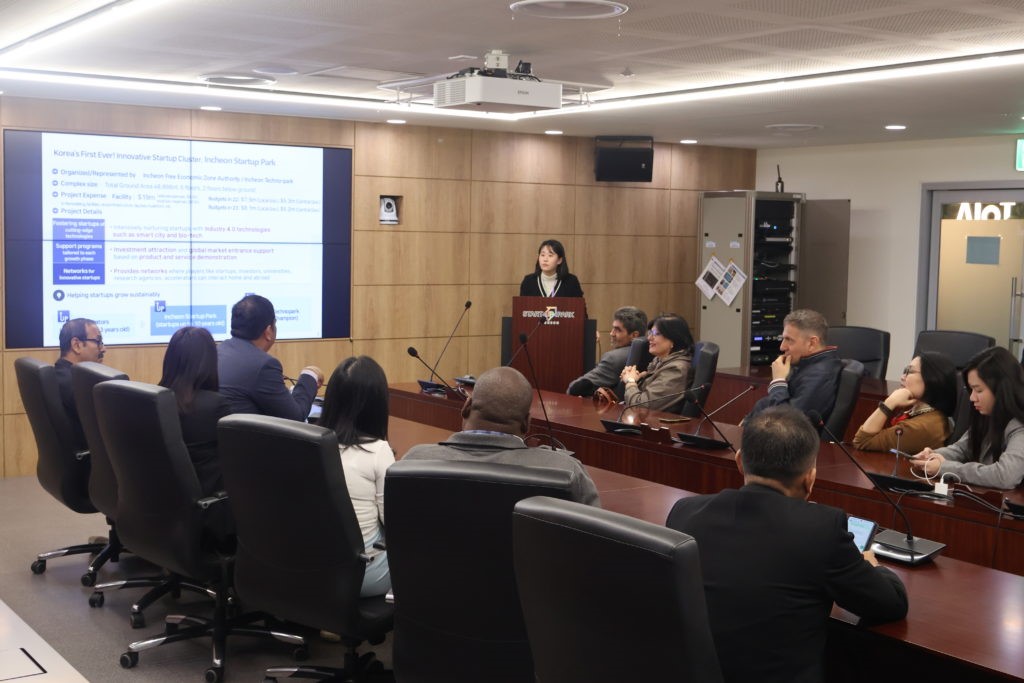
In addition, NXPO held bilateral meetings with leading Korean organizations, including the Korea Research Institute of Chemical Technology (KRICT), Korea Institute of Energy Research (KIER), and LowCarbon Co.,Ltd., to discuss advancing carbon capture utilization (CCU) and hydrogen energy technologies in Thailand – key components in achieving the country’s net-zero greenhouse gas emissions target.
